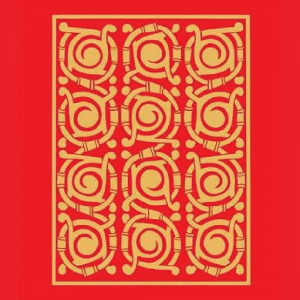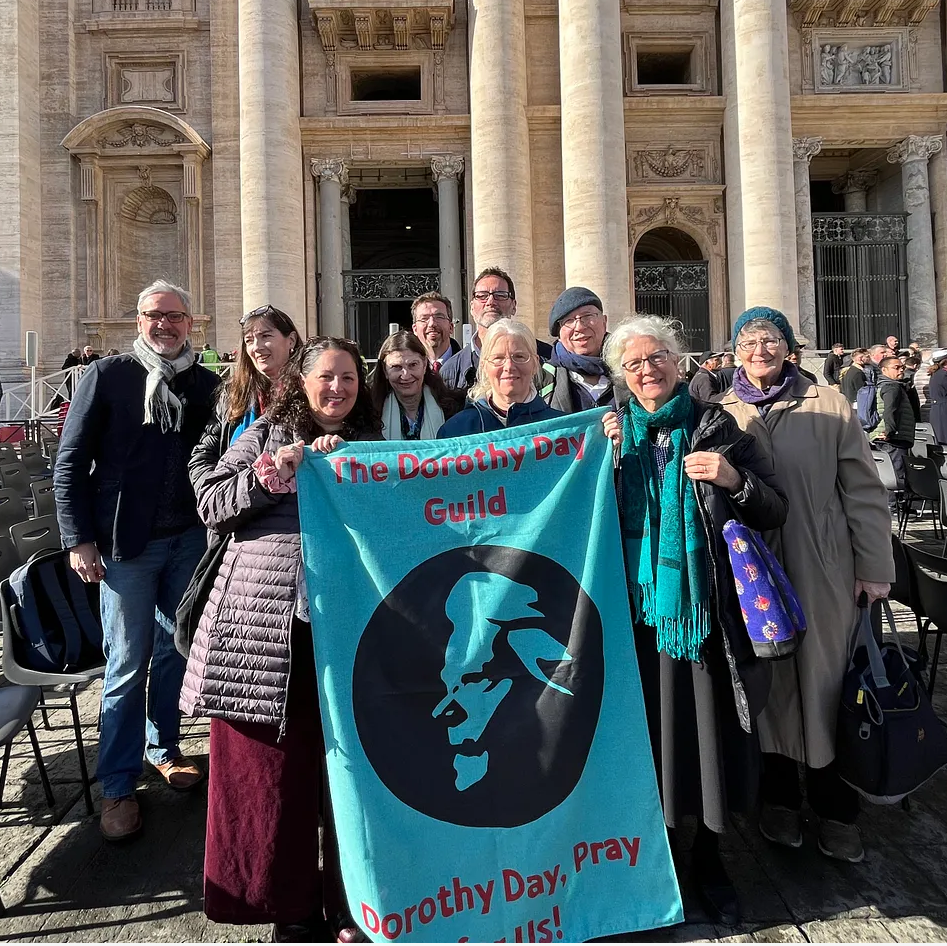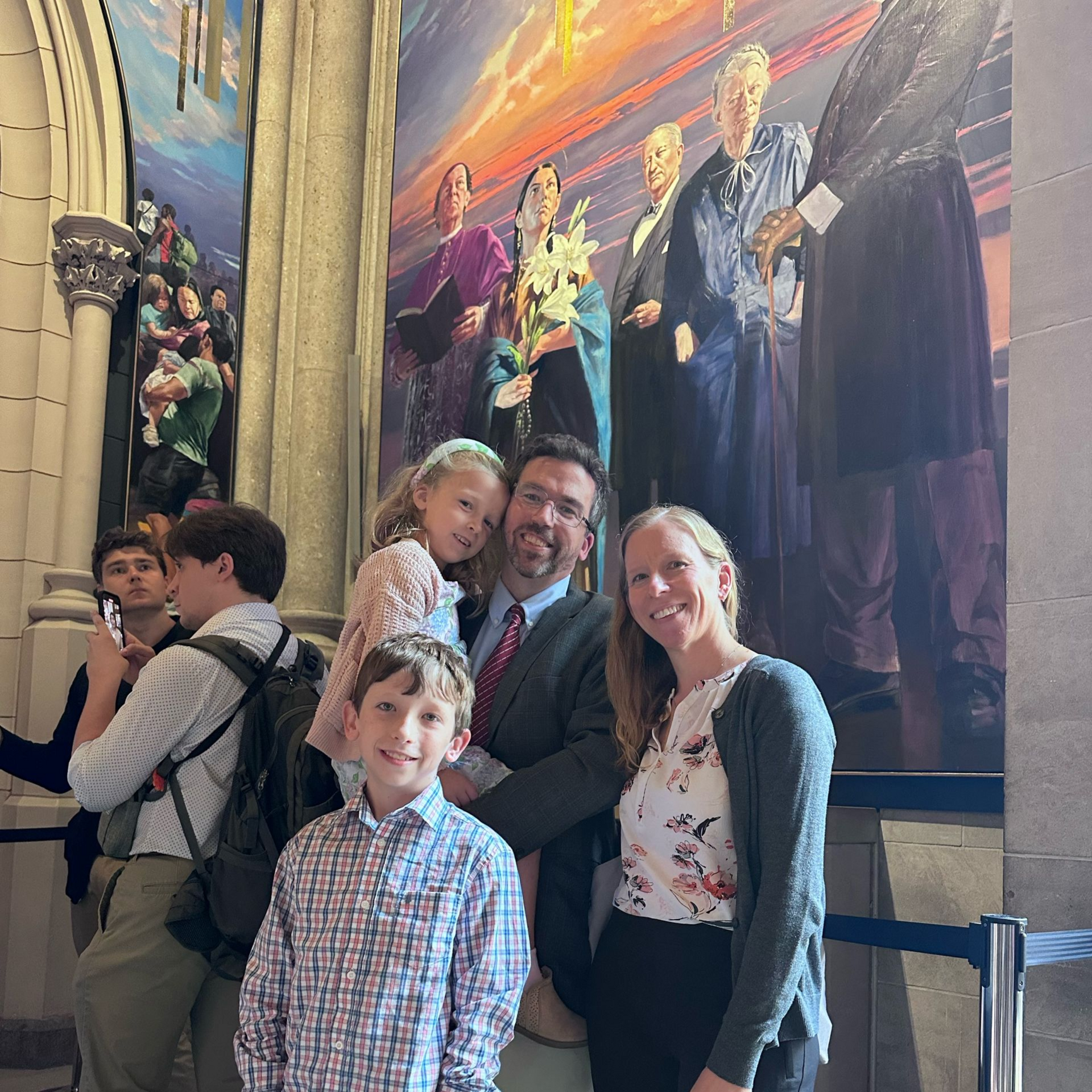In Our Time: Larry, we are so grateful for your studies of the saints, elucidating their importance for us today.
Often we describe Dorothy Day as being “a saint for our time.” And you write about how the style of true saintliness is relative to the problems of spiritual living of the times, because the greatest of the saints are “those who have risen above the exigencies of a particular moment to show a new way.” Could you talk a little about Dorothy’s “new way”?
Lawrence Cunningham:
Well, I mean new in the sense of, you think of the canonization process, say most of the people that were canonized by John Paul II,they tended to be founders of religious orders or members of religious orders, or in a few rare cases, married couples and so on and so forth. But Dorothy was singular in the sense that she was a convert. She had a history behind her. I think she’s the only candidate for canonization who ever admitted to having an abortion when she was young, and she made this radical conversion of life and started a movement that exists to this day. So she was different from the typical of those who are candidates for canonization.
“in Dorothy’s case, her story itself is so extraordinary! The miraculous seems like some merengue on the pie.”
IOT
: As you well know, the process of canonization is a juridical one. What we refer to as the “cause” for Dorothy Day is actually a “case” to prove her sanctity. There are very clear criteria, including the “heroic” practice of virtue, attested to in interviews with people who knew or worked with her, in writings by and about her, etc. Almost two years ago now, literally tons of documentary evidence was sent to the Vatican’s Dicastery for the Causes of Saints!
Which brings us to this critical issue of miracles – the final requisite proof of holiness. Can you shed some light on the significance given to them?
LC:
The miracles are expected in the process of canonization, and if she’s canonized, it’s going to be because the Roman authorities accepted a supernatural intervention through her on some person in a way that can’t be explained otherwise.
But the point is that canonization is a process. The papal process we know today is a 17th century phenomenon, but there were canonizations before there were papal canonizations going back well over a thousand years. What I’m saying is, it’s a very complicated story.
IOT:
At the risk of terrible oversimplification, can you sketch it out a bit for us?
LC:
Well, this whole business of the rise of the importance of miracles in canonization starts 400 years before the first papal canonization, which was in the 10th century, and it was a way of distinguishing history from fable. You had to have a historical person, and that person was a conduit through which God manifested his mercy by healing people or whatever. There’s a lot of historical development in these issues.
IOT
: There has been some talk in recent years about changing the miracle verification process in some way such that it would consider other types of miracles beyond medical ones—which make up the majority because they are well-documented and thus can be “proven” more easily. This might necessarily involve a loosening of the verification procedures. Do you see any reason for a change in the process today?
LC:
Oh, I’m the last one to ask that question! Supposing they do find some miraculous medical cure for Dorothy Day, would it make a difference in the story we tell about her? The answer clearly is no. So to me, it’s not an issue.
But I do think there has to be some kind of canonical process. I mean, there are people 30 or 40 years ago whom we might have thought of as really saintly, and it turned out they weren’t so saintly.
IOT:
I do worry a little, though, that the importance placed on miracles in the process of canonization contributes to our associating of holiness with the “extraordinary” – and hence to an idea of saints as being other worldly, inviting of reverence perhaps but not imitation – and not with the “ordinary” daily practices of the Christian life, exemplified by Dorothy, like the very concrete works of mercy to which we are all called.
LC: Well, I would kind of agree with that. And in Dorothy’s case, her story itself is so extraordinary! The miraculous seems like some merengue on the pie.
Our deep thanks to
Bro. Martin Erspamer, OSB, for the use of his iconic images (preceding columns for “Good Talk,” “Breaking Bread,” “Sowing Seeds,” “Signs of Holiness”)






